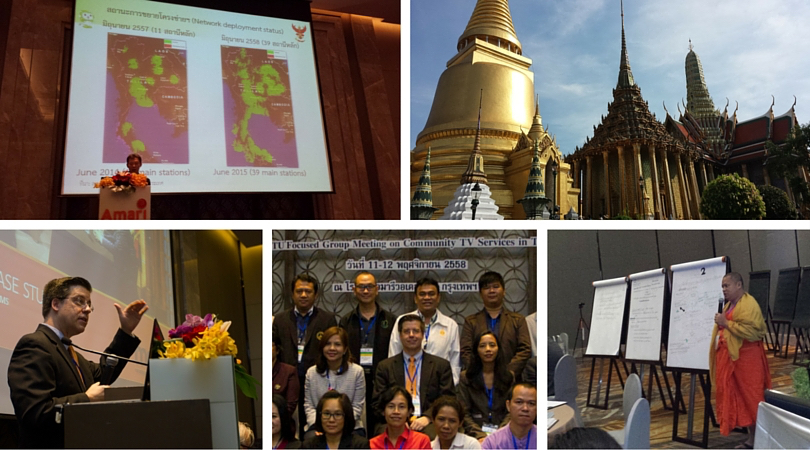
Challenges Thailand Faces to Launch Community Media
 Even halfway around the world, the issues around community media are largely the same.
Even halfway around the world, the issues around community media are largely the same.
Following five days of meetings, presentation and conversations in Thailand about how to set up Community TV channels across their country, I’m struck as how we have the very same challenges in the U.S.:
- how to build the right governing structure;
- how to find programming for our channels;
- how do we serve multiple communities and the diversity therein;
- what types of revenues are appropriate; and
- how do we remain an independent news and information source for our community, free from political influence.
My first day in Thailand, I was coached by Dr. Murray Green (former Australian Broadcasting Corporation Director-International and lead consultant to the Thailand government on the Community Media project) that we Westerners must understand that the lens in which we see the world is very different than what is experienced in Thailand. Suffering through more coups d’état than any other country in the world, the Thais understand that even the government itself can be swept away in a moment, and years of effort to build community media could be undone overnight.
Much of Thailand beyond the megacity Bangkok is rural, agricultural and isolated from one another by distance and topography. The plan to place a single community media center and associated television channels in 39 regions will be the first opportunity for these residents to learn the stories of their neighbors, hear the many dialects being spoken, and discover the rich diversity of local art, music, and culture that no national television service can offer.
As Chaiwat Chanthima of Phayoa TV (from a small city with a 900-year history), “Community TV must offer programs of the people, by the people, and for the people.” I think Abraham Lincoln would be proud to see his words being given a modern twist, twelve times zones away.
During my final presentation to the Thai group, I told them how honored I was to have been asked to participate in their first public meetings as they move toward launching community media in their country. I encouraged them to work to limit government regulation of the sector, providing them as much flexibility on fundraising that will ensure their financial sustainability. I shared with them some ideas on how to encourage the ‘content creators’ already in their communities to become involved with them in this new space. And I told them that to become a valued contributor to the people they serve, they should partner up with other institutions to solve regional problems by harnessing the power of television.
The last thing I shared with the group was the notion that when they launch their channels, they will enjoy a ‘honeymoon period’ where residents will initially be excited about this novel service. While they should take advantage of that newly-found love and affection, they must also plan for decades of challenges related to sustainability and maintaining their independence.
I sincerely hope the people of Thailand and community media enjoy a long and happy marriage.


Since thailand is suffering under a fascist dictatorship your “hope” has as much chance as a snowball in hell. however, astonishing developments in burma may make for a better media future in thailand. so, do come back sometime.